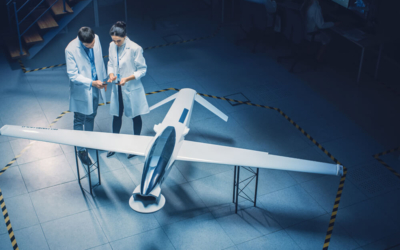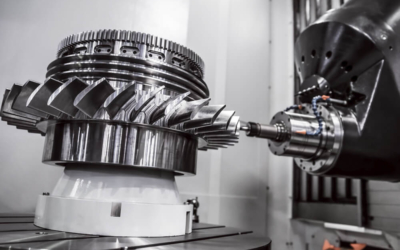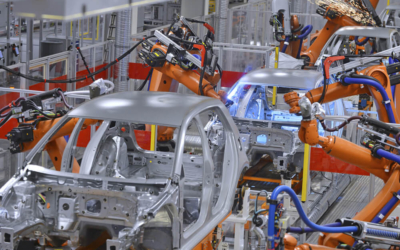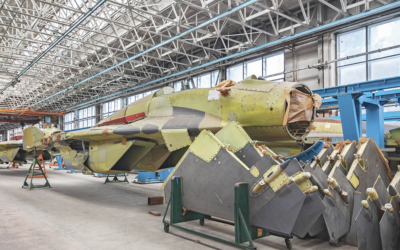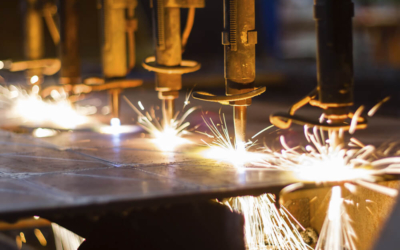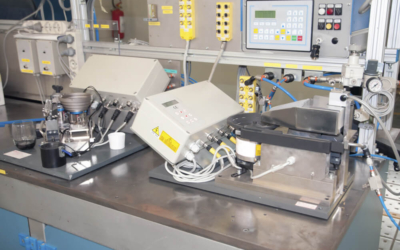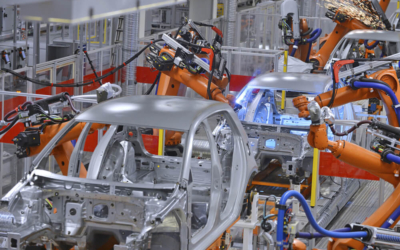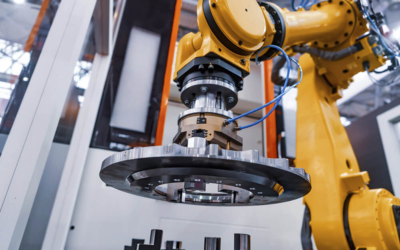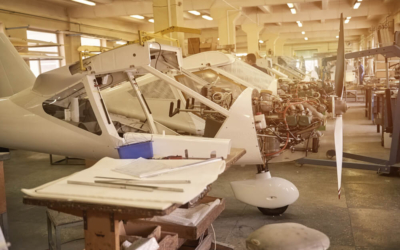As technology evolves, so too does manufacturing within the aerospace sector. These technologies are catalyzing advancements in test solutions, board electronics, mechanical systems, IoT, AR applications, and more in aerospace manufacturing. The introduction of 3D printing in aerospace has also enabled more efficient creation of complex and customized components, significantly impacting cost and weight parameters. This technological convergence is not just redefining processes but also reimagining the future of the aerospace industry.
Blog
Smart Manufacturing
Aerospace Manufacturing: How Today’s Innovations Will Help Us Go Farther
Aerospace and Defense, All Content, Smart Manufacturing
The aerospace and defense industry experienced a notable economic recovery in 2022, driven by the growing demand for air travel. As passenger traffic returns to pre-pandemic levels, there has been an increase in orders for new aircraft and military equipment, indicating ongoing growth in the coming year. Now is a great time to look ahead and determine which aerospace manufacturing innovations are likely to affect space exploration in the next decades.
Advancements in Safety Technologies for Auto Manufacturing
All Content, Automotive, Smart Manufacturing
Auto manufacturing is witnessing a revolution of sorts, with the advent of cutting-edge technologies reshaping the concept of safety. Embracing digital transformation, the sector is experiencing improved safety measures that have far-reaching implications for efficiency and productivity, from automated test equipment to the use of AI.
Electric Vehicles and Their Impact on Automotive Manufacturing
All Content, Automotive, Energy, Smart Manufacturing
Digital transformation is coming to every industry, particularly aerospace and automotive manufacturing. Combine that with one of the most profound and disruptive innovations of our time, electric vehicles (EVs), and the automotive industry is being forced to adapt and revolutionize. SAAB RDS, with its unique expertise and customer-first approach, can help you navigate this change.
Global Standards: Ensuring Quality in Aerospace Manufacturing
Aerospace and Defense, All Content, Smart Manufacturing
In the highly competitive field of aerospace manufacturing, quality and consistency are paramount. To achieve these goals, companies must adhere to international standards that set the bar for excellence. International standards provide a common framework for...
Unique Materials Used in Aerospace Manufacturing
Aerospace and Defense, All Content, Smart Manufacturing
The aerospace industry is consistently at the forefront of materials science. Aerospace manufacturing companies must be constantly ready to adopt new materials and produce them to satisfy the demands of major players in the industry. What are some of the new types of materials that we can expect to find in upcoming aircraft?
The Role of Automated Test Equipment in Auto Manufacturing
All Content, Automotive, Smart Manufacturing
The auto manufacturing industry is undergoing a major paradigm shift as manufacturers transition to producing more electric vehicles than traditional ICE models. In addition, autonomous driving features are on the rise, potentially changing how we conceive the entire concept of a car. These industry trends mean that automotive manufacturers need to introduce new components into their vehicles, which means opportunities for parts suppliers. To stay ahead of the competition, consider implementing automated test equipment to accelerate new product development.
IoT Guide: Boost Business Efficiency with Equipment Monitoring
In today’s highly competitive business world, companies are always looking for ways to improve their efficiency and productivity. One of the most significant ways to achieve this is by adopting the Internet of Things (IoT) technology. IoT can help businesses monitor their equipment in real-time, analyze data, and make informed decisions to prevent equipment breakdowns. In this beginner’s guide, we will explore the benefits of using IoT to monitor equipment, how it works, the different types of sensors and devices available, and how to set up IoT equipment monitoring.
How Digital Transformation is Reshaping Auto Manufacturing
All Content, Automotive, Smart Manufacturing
The automotive industry has experienced several transformations throughout its history. Today’s biggest shift is digital transformation, which is the shift to using entirely digital methods for R&D and other internal business practices. Going digital means more than just using computers, which has been commonplace for over 40 years. So, what makes this transformation so significant? Not only will it greatly speed up vehicle development and reduce manufacturing errors, but it’ll also benefit your business as a whole.
Disruptive Future Industrial Equipment Technologies
All Content, Artificial Intelligence, Automotive, Smart Manufacturing
The industrial equipment sector has been an important aspect of the world economy for a long time. It encompasses a wide range of products and services, including heavy machinery, tools, and automated systems, which are widely used in various industries such as manufacturing or construction.
Safe Flight: The Importance of Aerospace Manufacturing Testing
Aerospace and Defense, All Content, Smart Manufacturing
Aerospace manufacturing is one of the most complex processes, given the incredibly high importance of aircraft reliability. A crash can cripple a company. Boeing’s woes with the 737-MAX severely hampered their growth and limited orders, for example, and those issues could have been avoided with more careful testing and better solutions to issues. With renewed emphasis on safety, aircraft manufacturers expect their suppliers to uphold a higher standard. How can you make your business a better partner for aircraft manufacturing?
Digital Transformation’s Impact on Autonomous Vehicle Development
All Content, Automotive, Smart Manufacturing
There is a clear trend in the automotive industry. Autonomous vehicles are the future of transporation and companies big and small are vying for a piece of this new market. Nevertheless, new markets mean new difficulties. Digital transformation has already been critical to the few successful cases that exist. Companies like Tesla and GM have embraced digital engineering workflows with glowing results. Consider the challenges in designing autonomous vehicles and how going digital makes it easier to overcome them.

